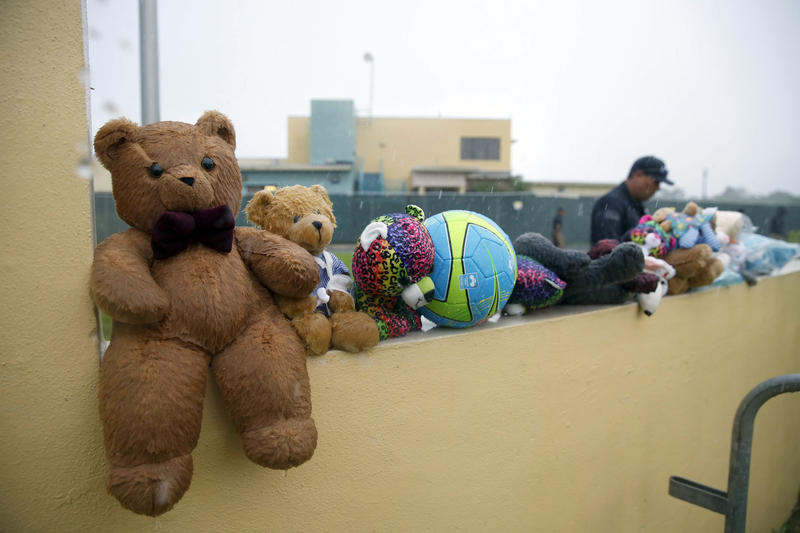OPINION: Foster systems disadvantaged by abortion ban

After HB 5 went into effect July 1, concerns have come up as to whether it will have a negative effect on Tampa’s already overwhelmed and chaotic foster care system.
While Gov. Ron DeSantis’ attempts to provide reforms to help foster kids and encourage more parents to raise them, it will not be enough to remedy the disorder that already exists and mitigate further chaos that will result from the abortion ban.
As of this year, Hillsborough County was estimated to have 3,100 children in foster care, making it the county with the most in Florida, according to a Feb. 11 Tampa Bay Times article.
Hillsborough has repeatedly failed them, with reports of abuse, neglect, child endangerment and uncontainable overcrowding from its former child welfare service Eckerd Connects.
The agency, which had been tasked with providing safe homes for these children, came under criminal investigation for its maltreatment in November. In a press conference addressing the investigation, Pinellas County Sheriff Bob Gualtieri called the children’s living situation “deplorable conditions” in a Nov. 4 interview with the Tampa Bay Times.
There were reports of overcrowding, with one caseworker reported having to take care of 154 children when they are encouraged to only have no more than 17 at a time, according to the Tampa Bay Times.
Eckerd Connect’s contract with Hillsborough ended July 30 and transitioned to the new child welfare agency Family Support Services (FSS). But with so many children in the system, concerns have been brought up as to whether FSS will really be able to remediate the foster system’s long history of inadequacy.
Angela Hart, the mother of a former Eckerd Connects foster child who died of an overdose, said in an August interview with WFLA, “Everything is the same. If your service providers and case managers are still the exact same, what changed?”
Parents are worried that despite the new name for the agency, its practices will stay the same and will not be any more equipped to handle the overabundance of foster children. But in this reality of the post-Roe world, Tampa must prepare for the foster care system to get even more crowded.
Contrary to the belief that adoption will be the cure-all for abortion, over 90% of these women actually choose to raise the child themselves, according to the National Library of Medicine.
DeSantis signed SB 7034 on March 12, which gives subsidies of $200 a month to relatives and non-relatives who serve as caregivers to foster children, as well as bolstering tuition and fee-waiver programs to help prepare foster kids for state colleges.
While financially supporting education is a good step, throwing more money into an already broken system is not enough to solve the issue. It seems like DeSantis is putting a bandaid over the gaping wound that is Tampa’s rampant overpopulation in the foster care system.
Florida’s Department of Children and Families received at least 1,000 referrals about abuse in foster homes in 2020, including 800 cases of neglect and 100 cases of molestation, yet terminated only 29 caregiver’s licenses, according to studies found in USA Today.
The fact that the foster care system is continuing to place children in unsafe homes is despicable and shows the corruption of a system that is meant to protect our most vulnerable. If Florida’s system cannot find the resources to provide safe homes for children now, they are definitely not equipped to handle this issue once the overcrowding worsens as a result of HB 5.
Improper care inside foster homes and by social workers contributes to the shocking statistics, like how 25% of youth leaving foster care will be incarcerated within a few years of turning 18, according to Georgetown Law.
It’s also been found that 90% of foster care children have a serious mental illness, despite roughly 25% receiving mental health services, according to the National Resource Center for Family-Centered Practice and Permanency Planning.
While HB 5 highlights the importance of adding more foster parents into the system, it is evident it is not just a quantity issue, but a quality issue. The mental and physical health of these children have been overlooked in both the agency and the foster home, and we can only imagine how the system will bear under the pressure of taking in more children.
The foster care issue is one that is pervasive on all angles, and we will not see a solution until leadership tackles it from the roots.
More attention needs to be paid as to why so many children are being separated from their parents in the first place. More mental health services must also be provided for these children in order to ensure their well-being.
While SB 7034 is important in getting the ball rolling to help foster kids, it will not be strong enough to contradict the negative effects that DeSantis has brought by banning abortion. We can only hope that Florida Support Services and DeSantis are prepared to handle this, and will work hard to overcome the long history of abuse and neglect in Tampa’s foster care system.







